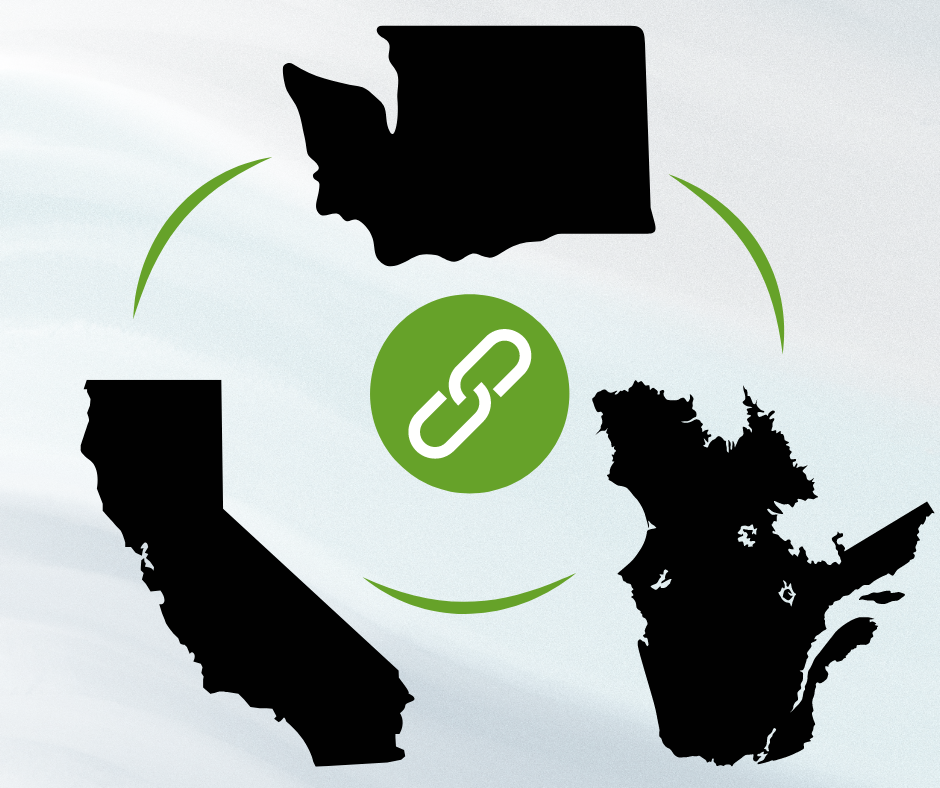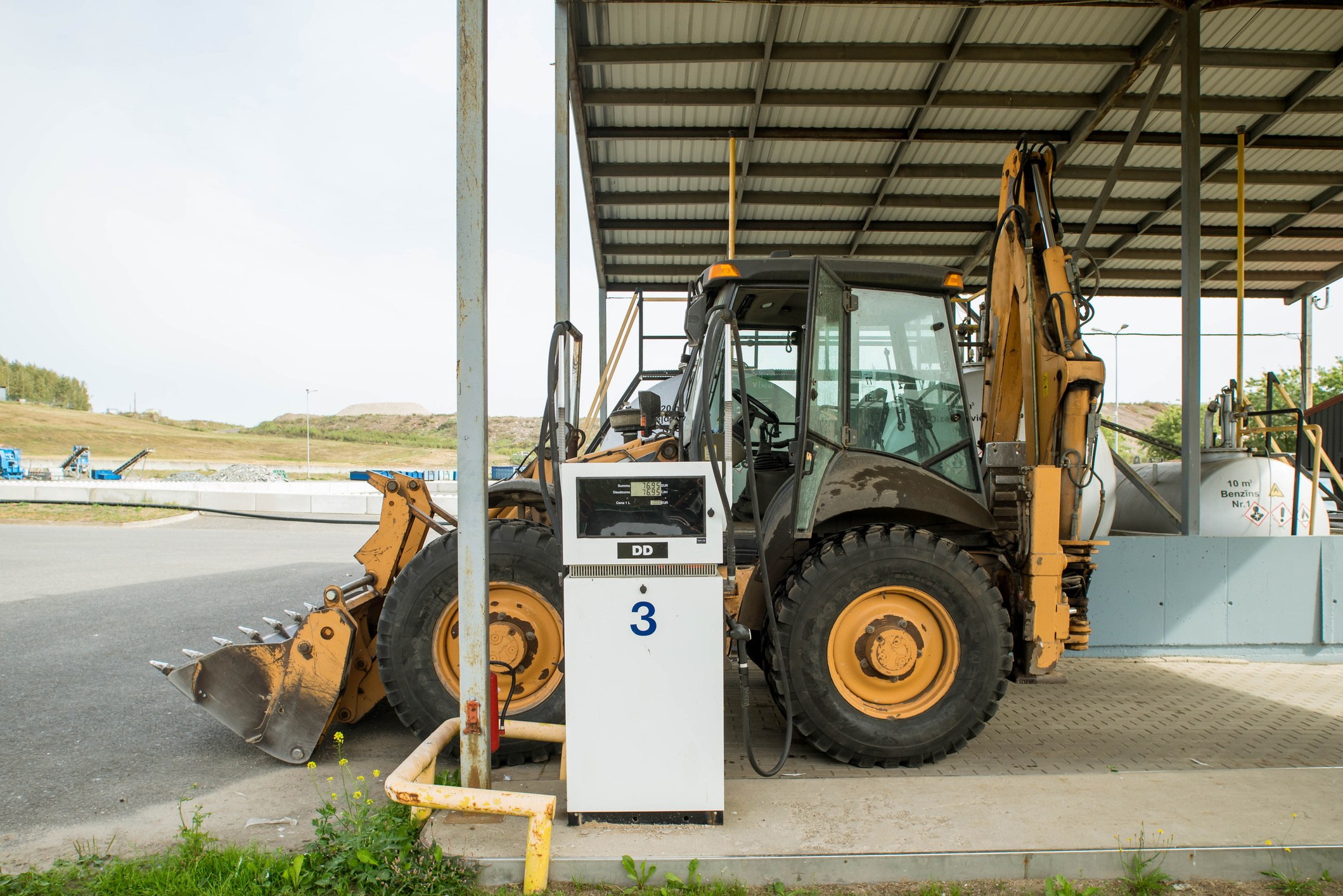Relevant Topics
This fall, voters will consider repealing Washington’s climate law that has significantly increased the price of gas, diesel, and home heating. If Initiative 2117, which would repeal the state’s new tax on CO2, fails, the climate law should be changed to reduce the risk that it will be even more costly and economically damaging.
The legislature is now considering a bill that would make it easier to join the existing CO2 market in California and Quebec. SB 6058 would make some technical changes to the Climate Commitment Act (CCA) and allow the Washington State Department of Ecology to negotiate a linkage agreement with California and Quebec, creating a three-state CO2 market.
While we should always be wary of tying our fortunes to California’s regulations, joining the California and Quebec CO2 market is a good idea. Joining their market, known as “linkage,” would likely reduce the price of the CO2 tax in Washington state and would reduce the risk of price volatility that could send prices skyrocketing due to weather or other factors that increase demand for gasoline or natural gas.
As strict as California’s regulations are, joining their market would probably reduce the cost of Washington CO2 tax.
In a CO2 cap-and-trade market, prices are set at an auction for a limited number of CO2 allowances. In the last regular auction in Washington, allowances sold for $51.89. By way of contrast, allowances sold for $41.76 in the latest California auction – about 20 percent lower than Washington’s price last winter. Joining California’s market would likely increase their prices and lower ours. California taxpayers would be subsidizing Washington residents.
Large markets also reduce the risk of volatility that can occur in cap-and-trade systems. Both the sulfur-dioxide market to fight acid rain and Europe’s CO2 market. There is always a risk of volatility when the market is constrained by an arbitrary cap on allowances – like Washington’s – but a larger market offers more flexibility to deal with potential price shocks. Very cold weather in Washington, as we had this winter, may increase demand for natural gas for heating, while temperate weather in California may offset or mitigate that demand. If Washington goes it alone, increased demand can mean a big increased in demand for CO2 allowances and the potential of a price shock.
It is also worth noting that when it comes to the price impact of the tax on CO2, California has been far more accurate and honest. While Governor Inslee and staff at the Department of Ecology claimed the price impact would be pennies, the calculation used by California said it would cost about 46 cents per gallon – almost exactly what it ended up costing. If linking with California results in more transparency and honesty, that alone might be worth adopting SB 6058.
Additionally, as nervous as some are about connecting our system to California’s politics, agency staff in Washington state have engaged in much more political manipulation of our CO2 tax than in California.
When prices soared last year, Department of Ecology staff responded by using the flexibility in the law to add a significant number of credits to the market at the lowest fixed price allowable. Having the ability to add credits on the market when prices increase can also help reduce price volatility. But it can also be used to respond to political pressure and reduce prices temporarily. Connecting with a larger market would make it more difficult to manipulate the market in response to local political pressure.
The most interesting, and troubling, parts of SB 6058 relate to private carbon-reduction projects, called “offsets.”
The rules on offsets are being made stricter. This is the opposite of what we should be doing. The Department of Ecology has very strict standards for offset projects, requiring them to be verified and effective. If projects effectively reduce CO2 emissions – as Ecology itself claims – why reduce their use? The reason is that the goal of the CCA is to increase tax revenue, not to verifiably and effectively reduce CO2 emissions.
In fact, the standards for offset projects are higher than for government-funded projects that claim to reduce CO2. There is no requirement that government-funded CO2 projects demonstrate effectiveness. And yet, SB 6058 actually reduces the number of verified carbon-reduction projects while legislators increase spending on ineffective government projects.
The bill should increase the percentage of offsets that can be used to meet obligations. It should also apply the offset requirements to all government expenditures.
Some of the opposition to SB 6058 is related to opposition to the CCA itself and to connecting Washington to California, where strict regulation has caused extremely high gas and electricity prices.
Those are valid concerns, but Washington’s CO2 price is already significantly higher than California’s and our relatively small market means our prices are likely to be more volatile.
Voters may decide to repeal the CCA this fall, making this issue moot. If, however, voters decide to keep the CCA, linking with a larger CO2 market can mitigate some of the potential problems Washington may face by going it alone in a small market.






